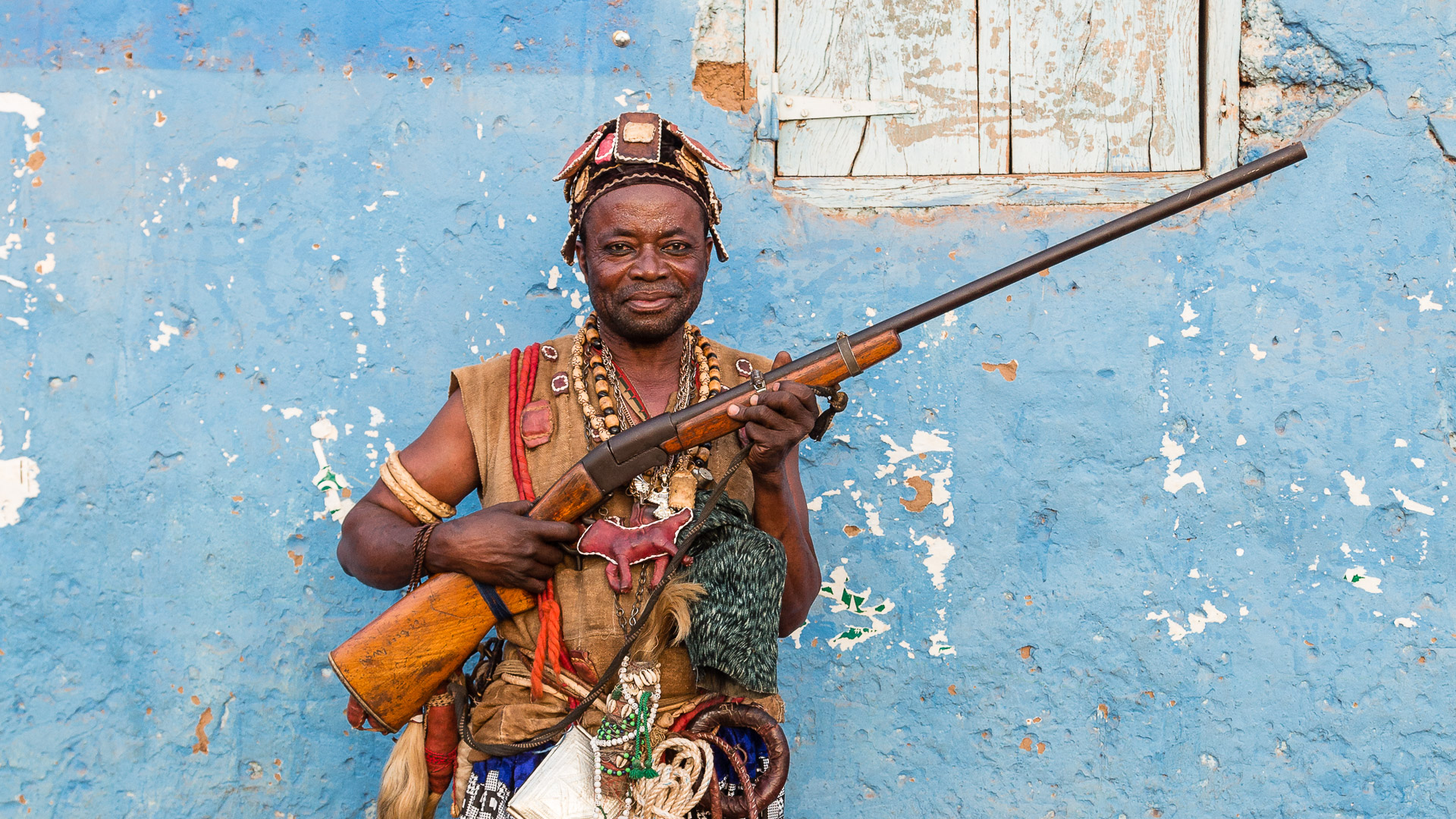
In the US, the world of evil spirits and magic spells becomes a national obsession just once a year—during Halloween. Creepy decorations and scary costumes might bring a momentary shudder, but the dark side of the supernatural realm quickly fades into the background as the focus shifts to Thanksgiving and Christmas. Everyday belief in the presence and power of evil forces mainly seems the stuff of superstitions and horror movies.
But in Sub-Saharan Africa, spiritual forces are palpable year round. Items like charms and amulets are ever-present evidence that beliefs in the spirit world are real and affect every aspect of life. In African traditional religion the natural world is filled with spiritual forces. There’s a fine line between the physical and spiritual world—so fine, in fact, that it often seems to dissolve.
Manipulating the Spirits
People try their best to deal with malevolent spirits by appeasing them and, if possible, using them to their advantage. Among other things, they turn to the spirits for power, protection, guidance, and healing. And one way they manipulate the spirits is through the charms they wear. Jewelry isn’t always just an accessory; it can be filled with power.
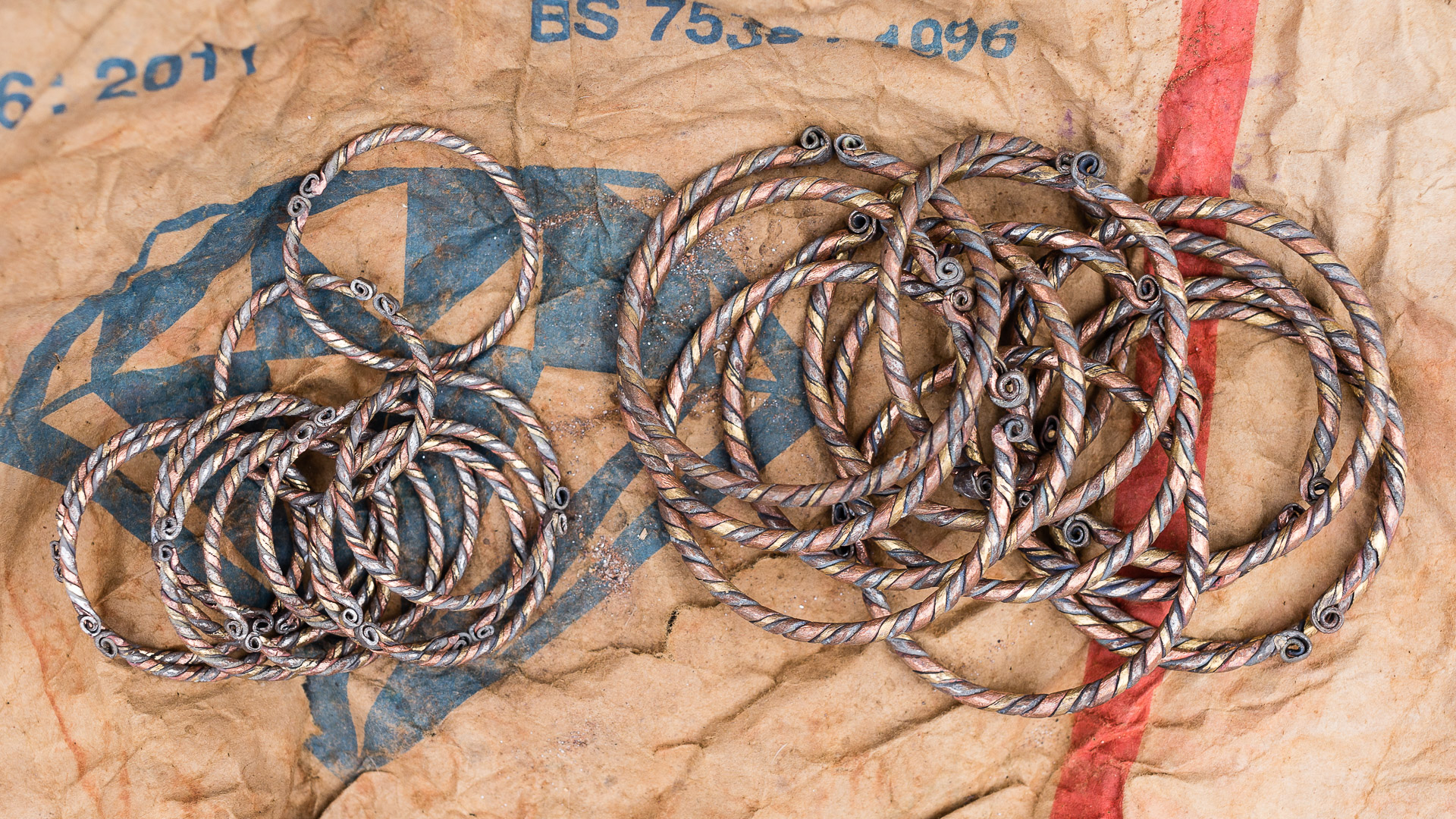 These basic bangles made of twisted metals are popular amulets in northern Ghana. People buy them in the market before they’re imbued with magical power. Then they take them to an earth priest or soothsayer and have them “charged up” with magical powers.
These basic bangles made of twisted metals are popular amulets in northern Ghana. People buy them in the market before they’re imbued with magical power. Then they take them to an earth priest or soothsayer and have them “charged up” with magical powers.
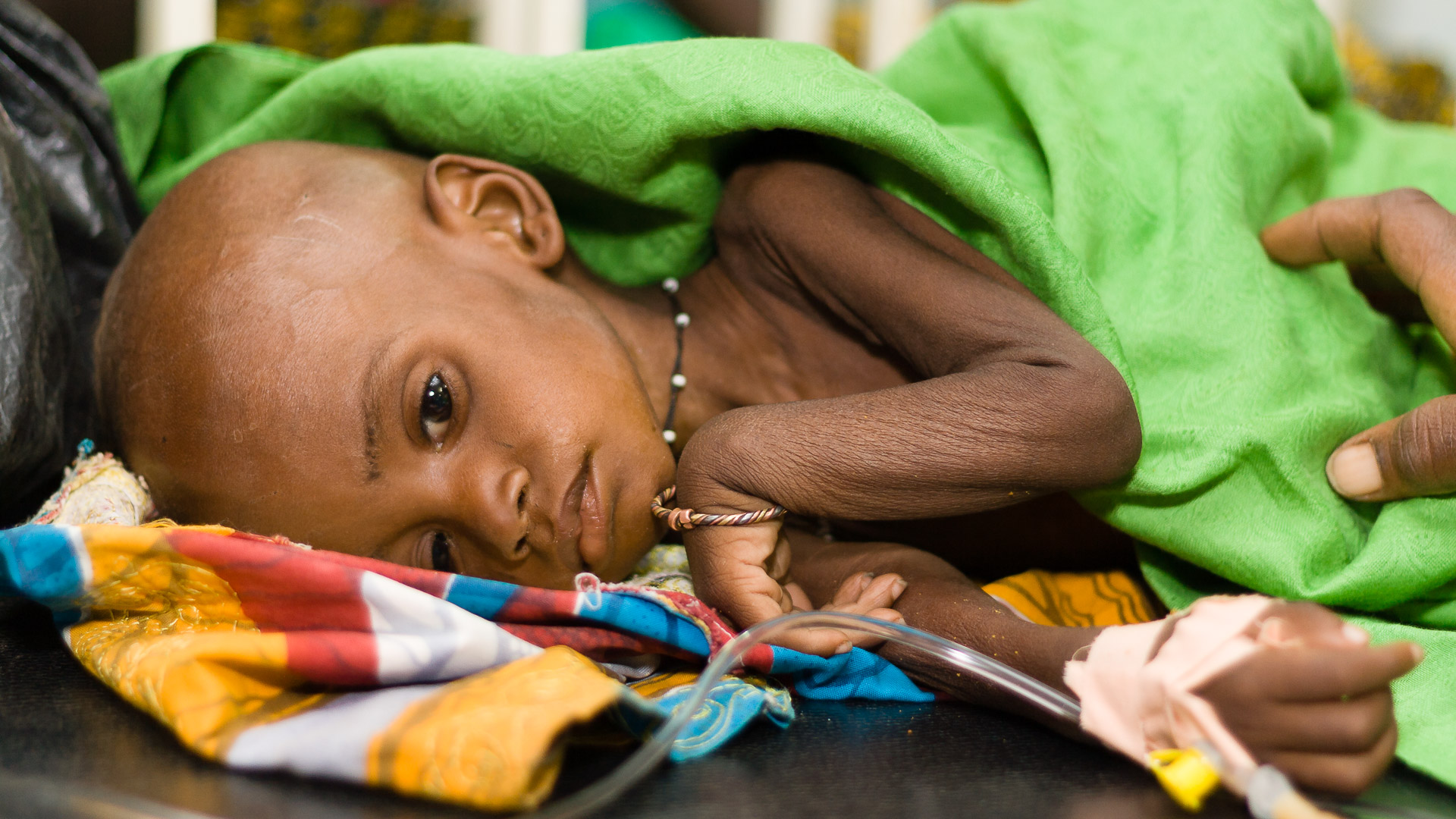 This Fulani toddler (above) at the Baptist Medical Centre in Nalerigu, Ghana, is wearing a magical, twisted metal bracelet, perhaps as an attempt to aid his recovery from his illness.
This Fulani toddler (above) at the Baptist Medical Centre in Nalerigu, Ghana, is wearing a magical, twisted metal bracelet, perhaps as an attempt to aid his recovery from his illness.
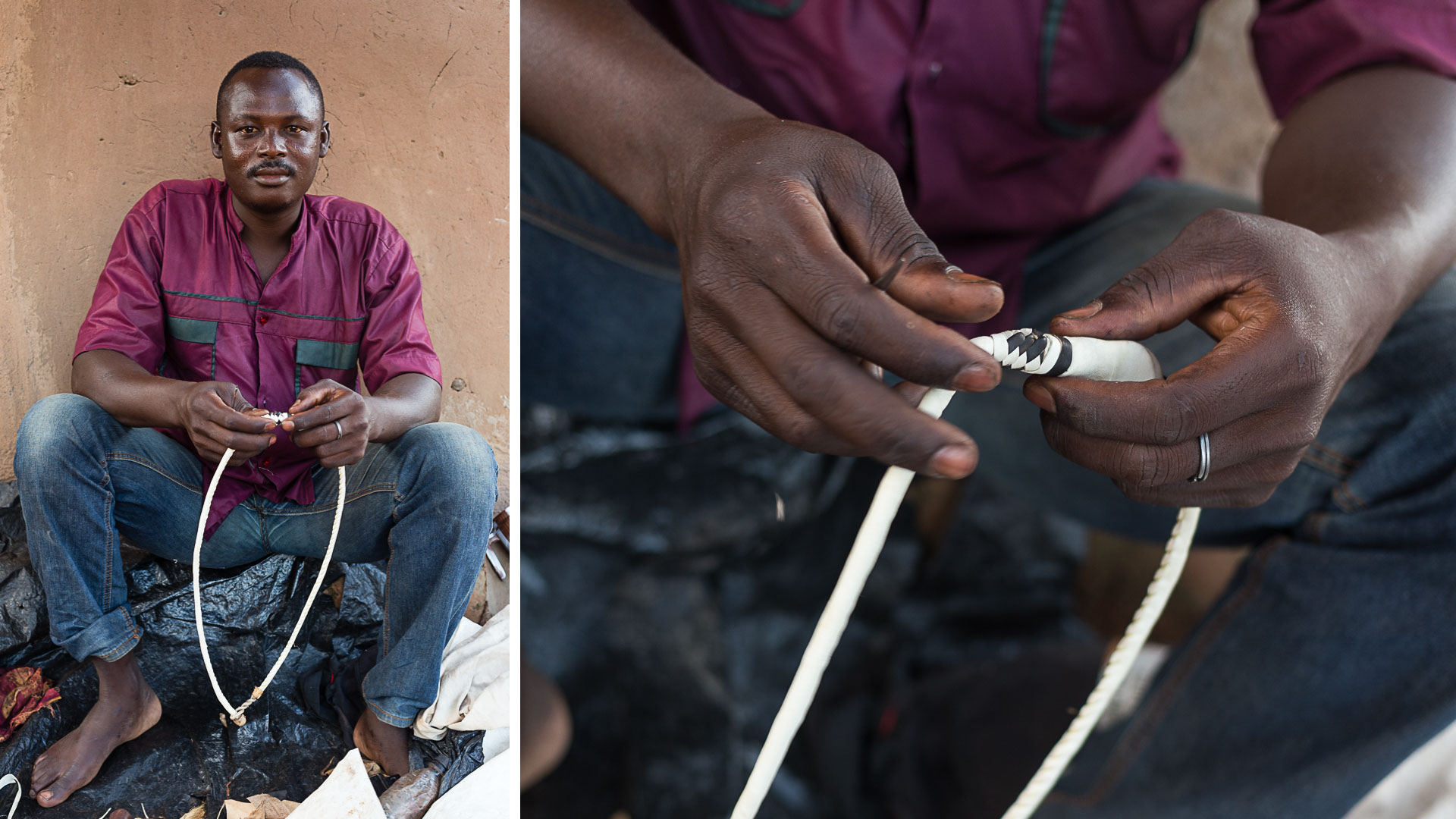 This Mamprusi leather worker in Ghana is making kanni, a magical charm that a woman wears around her waist. These are especially common for pregnant women to wear to protect them from harm during their pregnancy. Most of the talismans and amulets in northern Ghana are made by the local leather worker. A client provides the craftsman with something magical to put in the talisman—often a piece of paper with qur’anic verses written on it. The contents are always kept a secret. To reveal the secret could negate its magical powers.
This Mamprusi leather worker in Ghana is making kanni, a magical charm that a woman wears around her waist. These are especially common for pregnant women to wear to protect them from harm during their pregnancy. Most of the talismans and amulets in northern Ghana are made by the local leather worker. A client provides the craftsman with something magical to put in the talisman—often a piece of paper with qur’anic verses written on it. The contents are always kept a secret. To reveal the secret could negate its magical powers.
“The greatest need among African peoples is to see, know, and experience Jesus Christ as the victor over the powers and forces from which Africa knows no means of deliverance.”
—Dr. John Mbiti
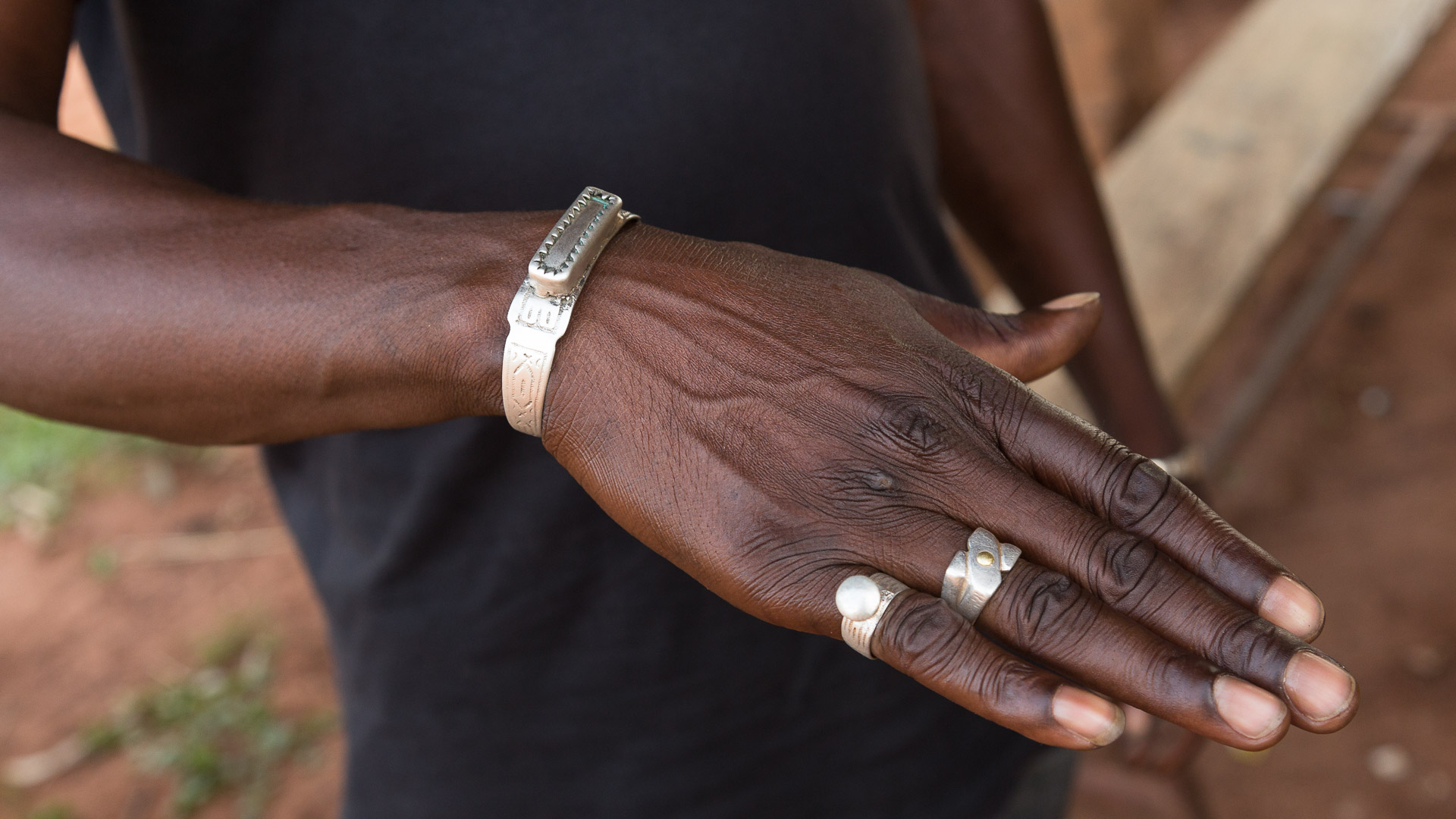 A Senufo man in Burkina Faso shows off his magical jewelry. The rings and bracelet were passed down to him by his father and to him from his father. They are made of silver from old colonial coins. Both the pinky ring and the bracelet contain a box that has a powerful, secret object inside meant to protect the man from evil spirits and harm.
A Senufo man in Burkina Faso shows off his magical jewelry. The rings and bracelet were passed down to him by his father and to him from his father. They are made of silver from old colonial coins. Both the pinky ring and the bracelet contain a box that has a powerful, secret object inside meant to protect the man from evil spirits and harm.
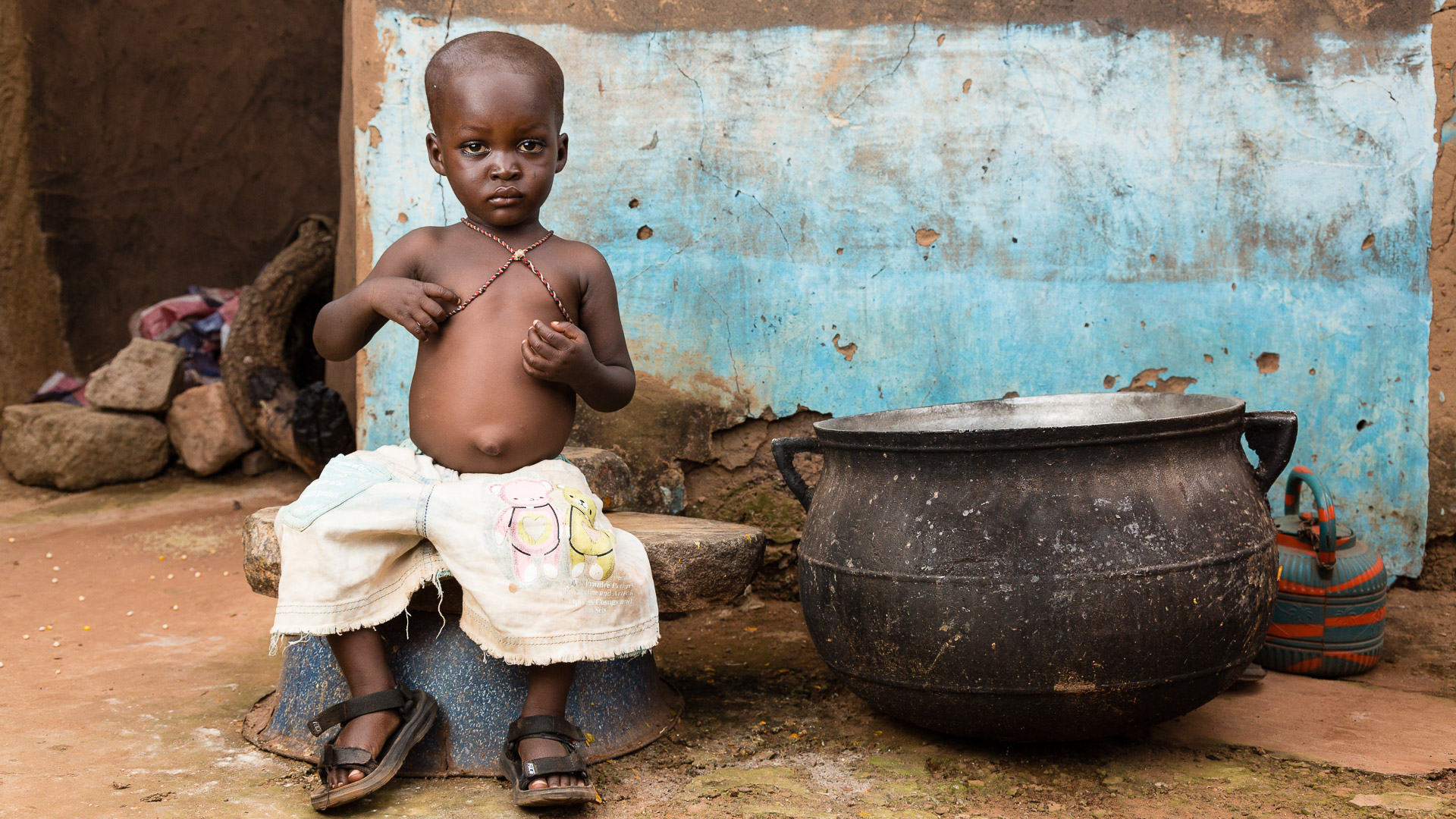 Toddlers in West Africa are often seen wearing threads laced across their chest from arm to arm. At first glance, the strings may appear decorative, but actually they’re a magical charm to heal a medical condition, usually coughing or breathing issues. The woven threads are nothing special, but a local healer will spit on them as he chants qur’anic incantations that are believed to give the thread healing powers.
Toddlers in West Africa are often seen wearing threads laced across their chest from arm to arm. At first glance, the strings may appear decorative, but actually they’re a magical charm to heal a medical condition, usually coughing or breathing issues. The woven threads are nothing special, but a local healer will spit on them as he chants qur’anic incantations that are believed to give the thread healing powers.
When Magic Becomes a Weapon
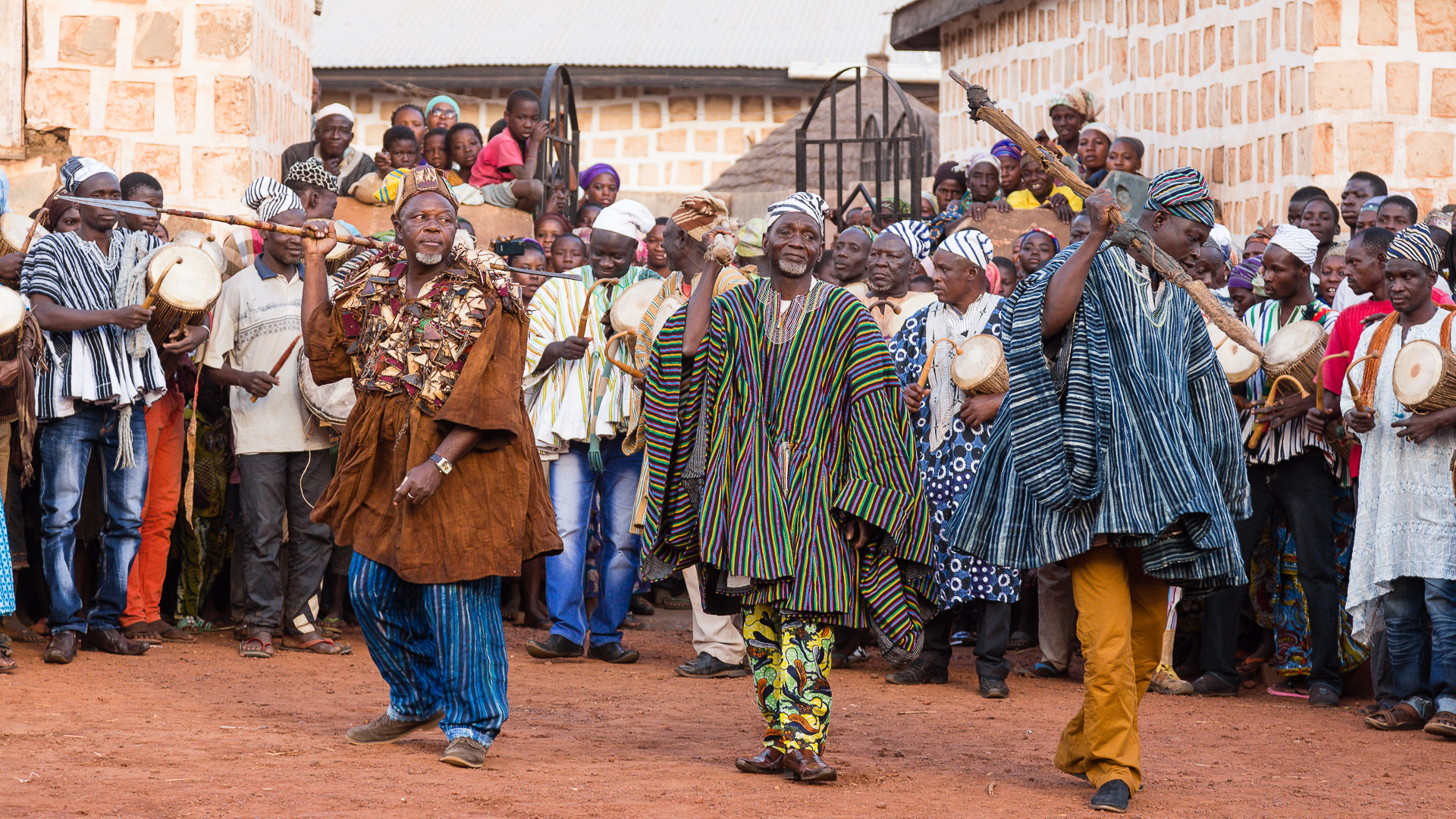 An elder (on left) in the Mamprusi paramount chief’s court dances a war dance with an ancient spear at the annual Damba Festival. He wears a gba’anu, war gown, that is covered with magical talismans, many containing a strip of paper inscribed with qur’anic verses. The gown’s fabric has also been soaked in water that was used to wash off qur’anic verses written in chalk on a tablet—a practice believed to make the one wearing the gown impervious to gunfire and swords during battle.
An elder (on left) in the Mamprusi paramount chief’s court dances a war dance with an ancient spear at the annual Damba Festival. He wears a gba’anu, war gown, that is covered with magical talismans, many containing a strip of paper inscribed with qur’anic verses. The gown’s fabric has also been soaked in water that was used to wash off qur’anic verses written in chalk on a tablet—a practice believed to make the one wearing the gown impervious to gunfire and swords during battle.
Magic charms are not only defensive. Some can be offensive. Some people get magical amulets and potions that can be used to kill another person, make them sick, or harm them in some way.
 Many tribes in northern Ghana pride themselves on their dancing. In dance competitions, men often carry special magic charms that are meant to “bind” other dancers so that they don’t perform as well. The dancer above wears this type of charm on his wrist as he dances.
Many tribes in northern Ghana pride themselves on their dancing. In dance competitions, men often carry special magic charms that are meant to “bind” other dancers so that they don’t perform as well. The dancer above wears this type of charm on his wrist as he dances.
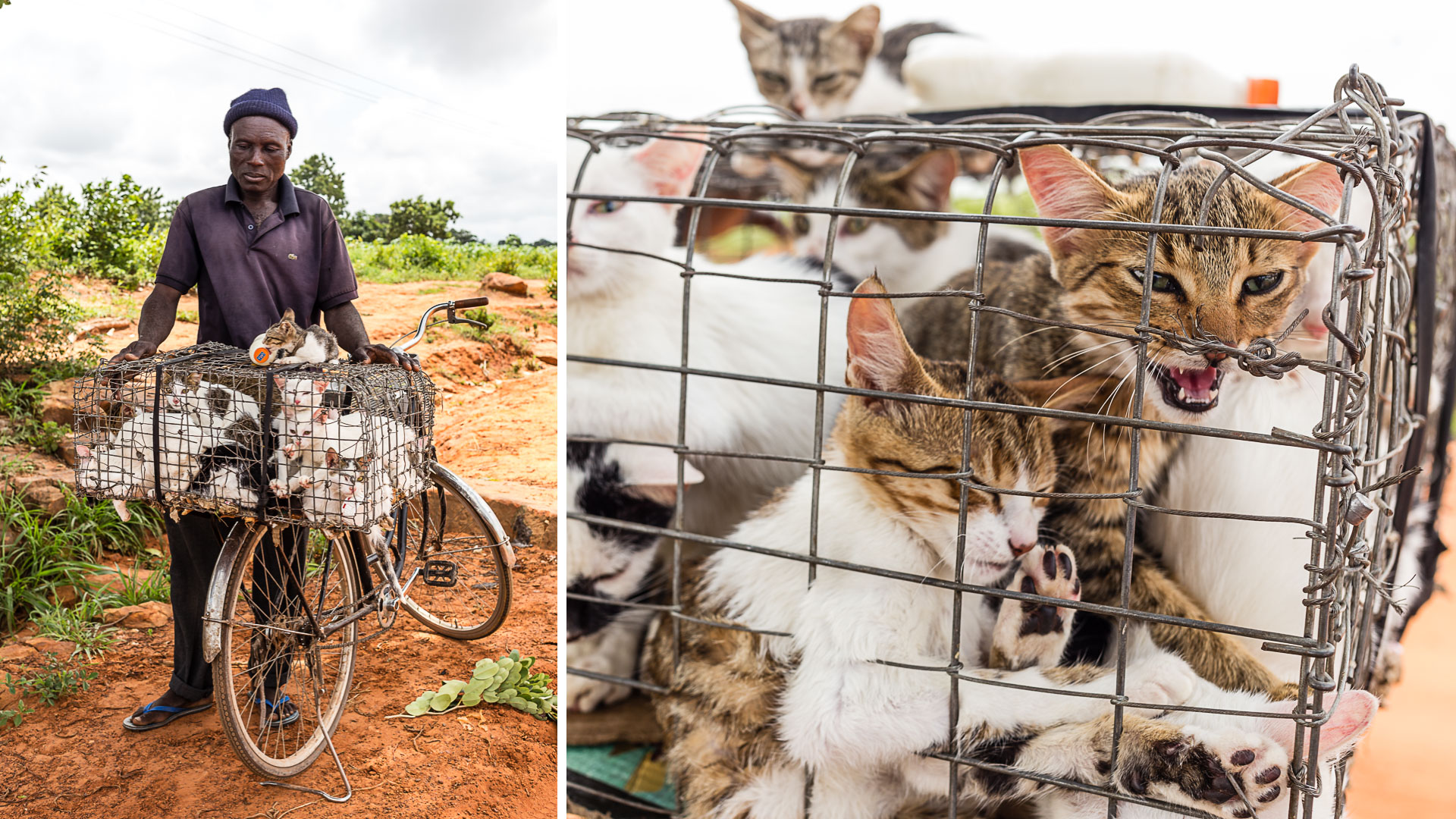 This traveling cat salesman is riding his bike over one hundred kilometers to sell cats to an ethnic group that believes cats have magical powers. Black cats are believed to be especially powerful and fetch a much higher price. Some soccer goalies will seek out a magical stew that has cat paws in it. They believe the stew will give them cat-like reflexes and allow them to catch the ball better.
This traveling cat salesman is riding his bike over one hundred kilometers to sell cats to an ethnic group that believes cats have magical powers. Black cats are believed to be especially powerful and fetch a much higher price. Some soccer goalies will seek out a magical stew that has cat paws in it. They believe the stew will give them cat-like reflexes and allow them to catch the ball better.
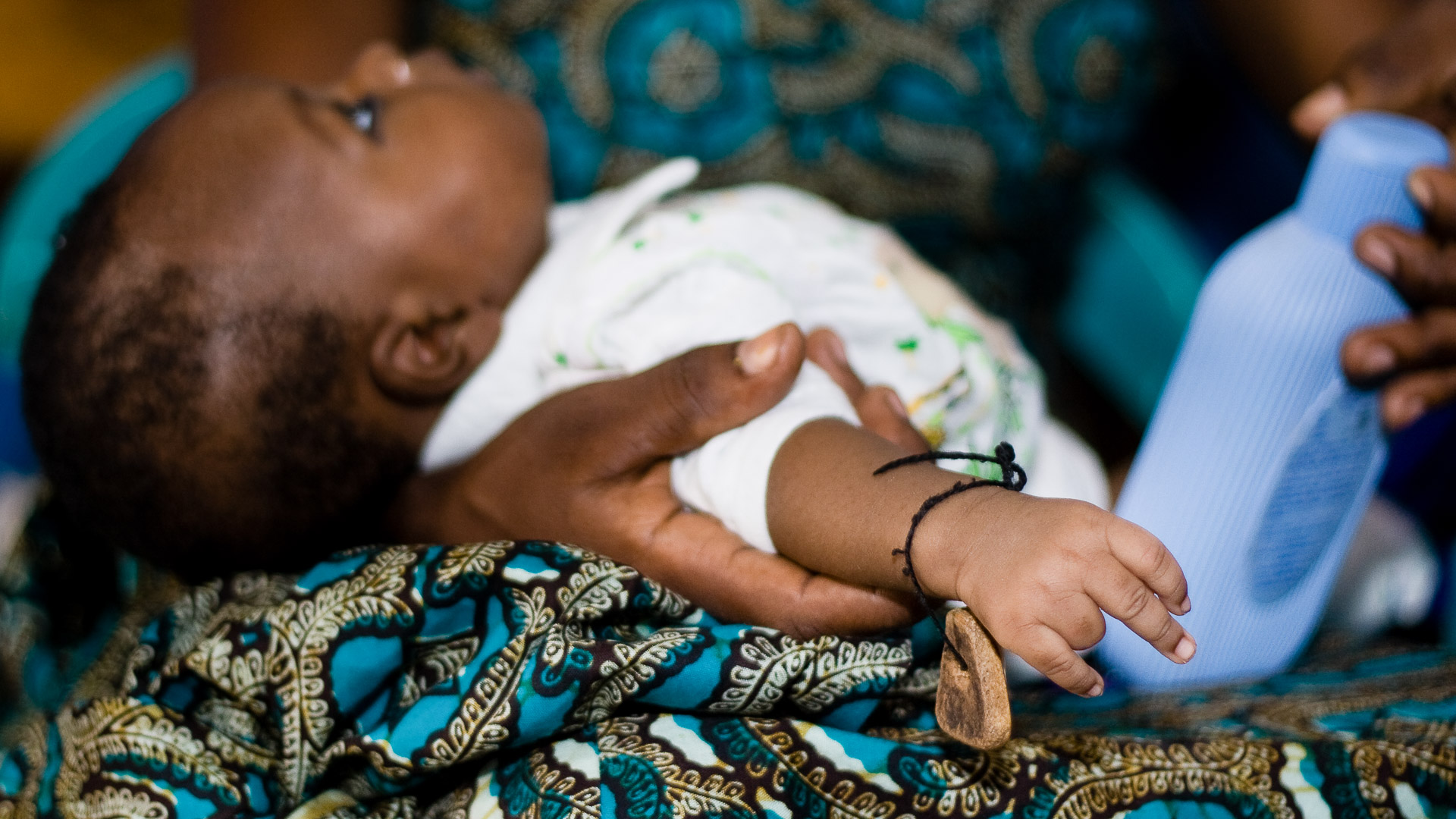 A newborn wears an amulet made from a piece of broken calabash on its wrist in Ghana. The bracelet was likely imbued with magical powers through a sacrifice to ancestors and is passed among relatives to put on babies in the family to protect them from harm.
A newborn wears an amulet made from a piece of broken calabash on its wrist in Ghana. The bracelet was likely imbued with magical powers through a sacrifice to ancestors and is passed among relatives to put on babies in the family to protect them from harm.
Magic in the Modern World
Although Westerners tend to label such magic and mysticism as superstitions of a bygone era, they are a real (though ill-fated) attempt by Africans to navigate this broken world. Each of the amulets, talismans, and magical charms pictured above are part of their owner’s quest for power to counteract and overcome bad magic, sorcery, demons, witchcraft, sickness, and the daily challenges of modern life.
“The greatest need among African peoples is to see, know, and experience Jesus Christ as the victor over the powers and forces from which Africa knows no means of deliverance,” said Dr. John Mbiti. Join us in praying for Africans to realize that Jesus—the one victorious over death—is more powerful than any spirit, amulet, or spell.
Power in Prayer
The apostle Paul reminds us that “we do not wrestle against flesh and blood, but against . . . the spiritual forces of evil in the heavenly realms” (Eph. 6:12). His weapons of choice in the battle against evil are the armor of God and prayer.
- Pray followers of traditional religion will repent of sin and follow Jesus wholeheartedly.
- Pray African believers will find strength in the power of the Holy Spirit to confront suffering and life’s difficulties. Pray they will not be tempted to consult witch doctors or use magic to solve problems.
- Pray for theological educators in Africa as they train the next generation of church leaders who need to know how to address the issue of magic with their congregations.
- Pray that missionaries who have to confront magical beliefs and practices would be free from fear and communicate truth with wisdom and grace.
Recommended Reading
Free Indeed from Sorcery Bondage: A Proven Scriptural Ministry by Marvin S. Wolford.
William Haun lives in northern Ghana in the heart of the ancient Mamprusi kingdom with his wife and their two children. He’s known locally as the “Sulimiinsina’akyinnaaba” or “young white men’s chief.” He loves learning Mamprusi proverbs, history, and folk tales and using those to communicate his faith effectively.

